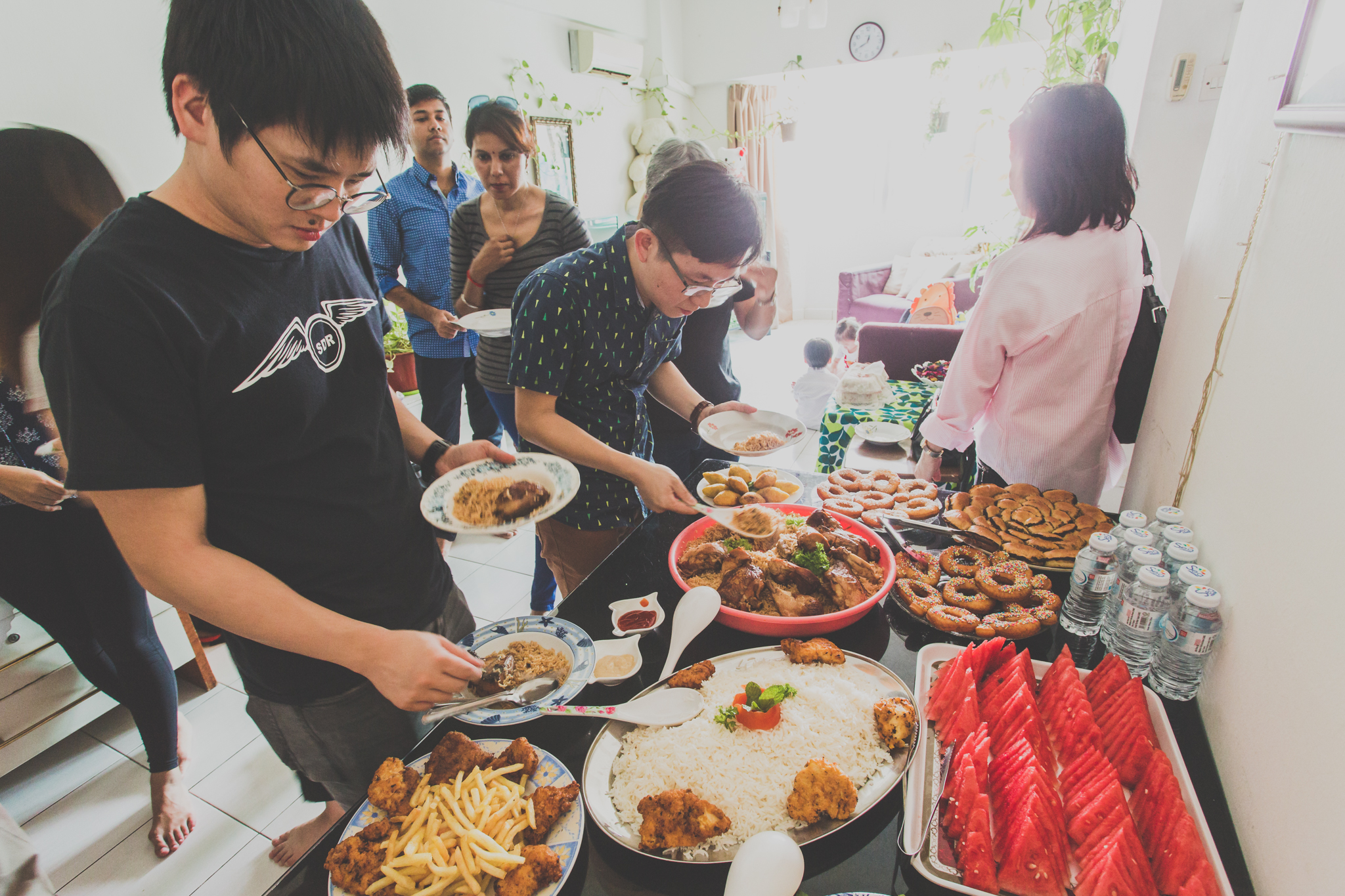Contributors
Director of Photography
Executive Producer
Text
Filmmaker
The Picha Project nourishes cross-cultural understanding in Malaysia.
A sumptuous spread awaits guests at Sara’s (not her real name) home in Kuala Lumpur, Malaysia.
The refugee from Afghanistan has spent hours prepping and cooking for an open house organised by social enterprise The Picha Project.
“They can see the refugee’s life,” says Sara. “They can see their problems, and understand, without anyone saying anything. They can feel, because they are in a refugee’s house.”
“Our food is a bridge between me and local people. We are using food to build friendships.”
The open house concept has proven to be a successful way of connecting people from disparate cultures. As of June 2018, The Picha Project has hosted 90 open houses, with some 1,000 people attending.

Co-founder of The Picha Project Suzanne Ling says, “Everybody needs to eat every day, so we thought why not combine both and sell the families’ food to help them earn a living.”
It sounds like a simple idea.
But it is one that has captured the imaginations of Malaysians, expatriates, and visitors from neighbouring countries.
Diners listen to the stories of different refugee families, while engaging in the communal act of eating.
Anabelle says she came with her husband and two children as it was “an opportunity to see what real life is about (for refugees).”
Another guest, Wearne, shares, “I never thought that it was such a tough journey for them.” He adds, “You get to know the person, to know the chef.”
The Picha Project is the brainchild of three university friends. Besides Suzanne, there are Kim Lim and Swee Lin. They were volunteering at a school for refugees from 2013, and found out students were dropping out of the school, because their families were struggling financially.
To find a more sustainable way to raise funds, the three friends decided to hawk meals cooked by refugees to fellow students. It was a whopping success.
This led to them starting The Picha Project in 2016, which has grown beyond selling meal boxes to include catering, open houses, kiosk pop-ups and on-shelf products. They work with 11 refugee families from five countries, Afghanistan, Iraq, Myanmar, Palestine and Syria, and have served more than 66,700 meals.
The refugees receive 50 per cent of the sales to pay for ingredients and labour, which is higher than the country’s minimum wage of 1,000MYR (US$250) per month. The rest is used to cover The Picha Project’s operational costs.
The young entrepreneurs’ goal to empower marginalised communities in Malaysia’s capital is being realised one meal at a time. But with nearly 158,000 (as of May 2018) documented refugees and asylum-seekers in the country, there is still much to be done.
Life is challenging for a refugee. “They have lost everything,” says Sara.
Even with a card from UNHCR, the UN refugee agency that legitimises their status, asylum-seekers live in uncertainty. Many survive on their savings, or the kindness of strangers.
Says Suzanne, “The government does not provide an allowance, accommodation, or food vouchers to help them.”
Back at lunch, diners of different ages and backgrounds are seated on the floor, their attention switching between Sara and the food.
Conversations flow in between mouthfuls of delicious Afghan specialities, such as mantu (chicken dumplings), qhabeli (basmati rice with raisins, carrot slices and spices) and bolani, a fried flatbread filled with mashed potatoes and chives.
Sara’s candid answers to a flurry of questions elicit surprise, empathy and laughter.
Several open house guests were unaware of the difficulties refugees face, like being unable to work.
Despite the constraints of living in limbo, Sara, a trained nurse, seems thankful to be in her new home.
When asked how she felt arriving in Malaysia in 2013, she says, “Very nice. The most important thing is it’s safe.”
With homegrown initiatives like The Picha Project, Suzanne hopes more people, especially Malaysians, will understand the plight of refugees.
“They are here with skills, and not here to steal,” she says, while urging Sara’s sated, newfound friends to tell others about their open house experience.
Suzanne adds, “Today’s meal may just be lunch to you, but to us it is awareness and a source of income. And it brings a lot of encouragement and support.”
Interested in participating in an open house? Follow The Picha Project here to receive the latest updates.
Director of Photography
Executive Producer
Text
Filmmaker